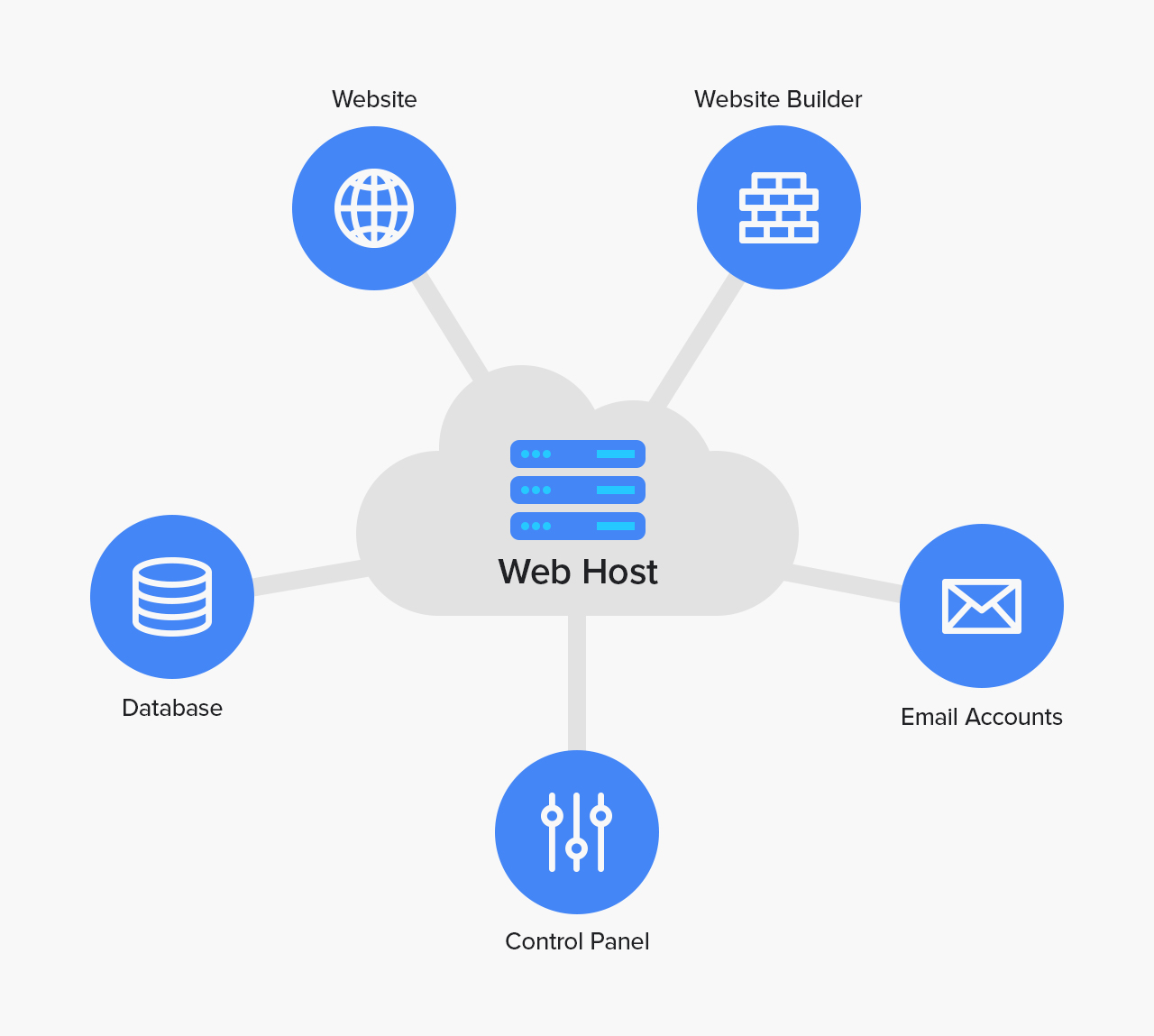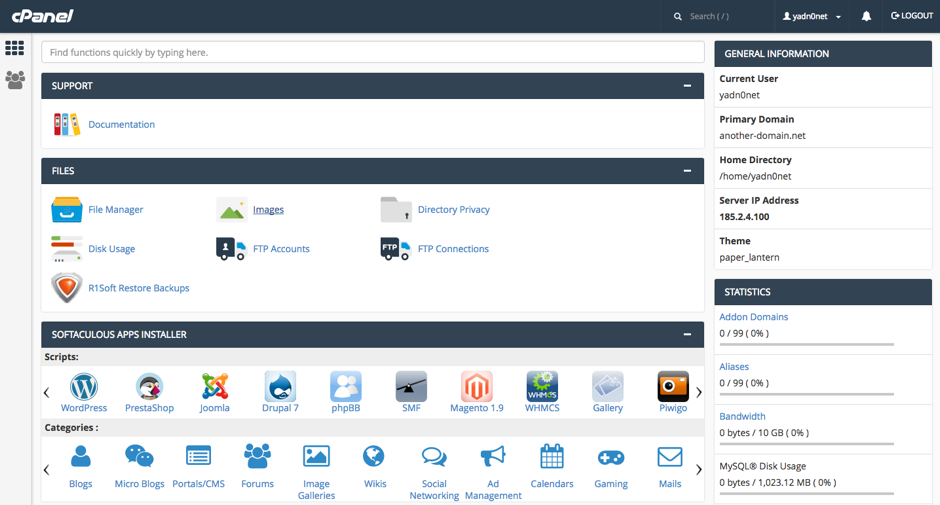
Web servers connect computers with the Internet to manage data exchange. They are equipped with software that manages which files are sent to users. They are an ideal example of a client/server system. Web server software and hardware must be installed on every computer hosting a website. Web servers can also be called "servers" in some cases.
Concurrency
Scaling your web site requires that you consider the concurrency that a web server is capable of handling. It is crucial to realize that the speed of your website's scaling is not determined by its front-end productivity. The bottleneck is in fact the number concurrent users. To determine the best amount of resources for a site, web servers use estimates of concurrent users. An inaccurate estimation could cause your application to slow down.

Configuration
Configuring web servers plays a crucial role in creating a secure environment for web hosting. Administrators need extra caution when configuring web servers. Typical configurations contain numerous network services, such as remote registry services, print server services, and RAS.
GET method
If you are using a web server to send data to another site, the GET method is the way to go. This method can be cached, unlike the POST method. This method allows you to send large quantities of data as well ASCII data. This method is not recommended for sensitive information, such images or words. The GET method also has some drawbacks. It is not compatible with many firewalls. It can take a while to upload large binary file.
Nginx
Nginx, a lightweight web server that delivers high performance and low latency, is available. It's an ideal choice for websites with high traffic. Nginx does have some limitations. For instance, it doesn't provide a way to specify a configuration file system directory. Instead, it configures itself by responding to the different patterns of requests.

Apache
Apache is an Apache web server, which allows you to create multiple websites and manage them all from the same server. This web server can support many languages, and you have many open source modules to help make your website even more powerful. You can use this web server on many operating systems such Microsoft Windows, Linux or Unix.
FAQ
Can I use HTML & CCS to build my website?
Yes, you can! It's possible! You need to have basic knowledge in web design and programming languages, such as HTML (Hyper Text Markup Language), CSS and Cascading Style sheets (Cascading CSS Sheets). These languages allow you create websites that can be viewed by anyone with internet access.
What Kinds Of Websites Should I Make?
This question is dependent on your goals. It may be best to sell online your products to build a company around your website. This will require you to set up a strong eCommerce site.
Blogs, portfolios, forums, and other types of websites are also popular. Each one of these websites requires different skills. If you are looking to start a blog, then you need to know about blogging platforms like WordPress and Blogger.
Once you have chosen a platform, it is also important to determine how you can customize the appearance of your site. There are lots of free themes and templates available for each platform.
After you have chosen a platform, it is time to add content. Your pages can be filled with images, videos and text.
When you are ready to launch your new website, you can publish it online. Your site is now available for visitors to view in their browsers.
What is a website static?
A static website can be hosted anywhere including Amazon S3, Google Cloud Storage (Google Cloud Storage), Windows Azure Blob storage and Rackspace Cloud files. A static website can be also deployed to any platform supporting PHP, including WordPress, Drupal and Joomla!, Magento, PrestaShop and others.
Static web pages can be easier to maintain as they don’t need to send requests back and forward between servers. Also, they load faster because there's no need to send any requests back and forth between servers. For these reasons, static web pages are often better for smaller companies that don't have the time or resources to manage a website properly.
How Much Does It Cost To Create An Ecommerce Website?
It all depends on what platform you have and whether or not you hire a freelancer. The average eCommerce site starts at $1,000.
You can expect to pay between $5000 and $10,000 for a platform once you have decided.
A template is usually less than $5,000 if you plan to use it. This includes any customizations required to reflect your brand.
How to design a website?
First, you need to know what your customers want from your site. What do they look for on your site?
What kind of problems can they have if they cannot find what they want on your site?
Now you need to figure out how you can solve these problems. Also, you need to ensure that your website looks professional. It should be easy-to-use and navigate.
You should have a well-designed website. It shouldn't take too much time for it to load. People won't stay as long if it takes too long to load. They will move on to something else.
It is essential to determine where all your products reside before you start building an eCommerce website. Are they all in one location? Are they all in one place?
Decide whether you plan to sell one product at a time or several products. Are you looking for a single product to sell or multiple products?
Once you have answered these questions, you can begin building your site.
Now it is time for you to concentrate on the technical aspect of things. How will you site function? Will it run fast enough? Are people able to get it done quickly from their computers?
Can people buy things without having to pay more? Do they need to register in order to buy anything?
These are essential questions that you need to ask yourself. These are the questions that you need to answer in order to be able move forward.
Do I have to use a template?
Yes! Yes! Many people use pre-built frameworks or templates when creating websites. These templates provide all the code necessary to display information on your site.
The following are some of our most-recommended templates:
WordPress - one of the most popular CMSes
Joomla - Joomla! - another open source CMS
Drupal - An enterprise-level solution for large companies
Expression Engine - A proprietary CMS from Yahoo
Each platform offers hundreds of templates. Finding the right template should be simple.
Statistics
- The average website user will read about 20% of the text on any given page, so it's crucial to entice them with an appropriate vibe. (websitebuilderexpert.com)
- Studies show that 77% of satisfied customers will recommend your business or service to a friend after having a positive experience. (wix.com)
- It's estimated that chatbots could reduce this by 30%. Gone are the days when chatbots were mere gimmicks – now, they're becoming ever more essential to customer-facing services. (websitebuilderexpert.com)
- In fact, according to Color Matters, a signature color can boost brand recognition by 80%. There's a lot of psychology behind people's perception of color, so it's important to understand how it's used with your industry. (websitebuilderexpert.com)
- When choosing your website color scheme, a general rule is to limit yourself to three shades: one primary color (60% of the mix), one secondary color (30%), and one accent color (10%). (wix.com)
External Links
How To
What is website Hosting?
Website hosting refers simply to the place that people visit when they visit a website. There are 2 types.
-
Shared Hosting - This is your cheapest option. Your website files will reside on a server belonging to someone else. When customers visit your site, their requests travel over the Internet to that server. The owner of the server then hands off the request to you.
-
Dedicated Hosting - This option is the most costly. Your website will reside on a single server. You and your traffic are protected by the fact that no other websites share server space.
Shared hosting is cheaper than dedicated hosting for most businesses. With shared hosting, the company that owns the server provides the resources needed to run your website.
Each option has its pros and cons. Here are the differences:
Sharing Hosting Pros
-
Lower Cost
-
Simple to Setup
-
Frequent Updates
-
It can Be Found On Many Web Hosting Companies
Shared hosting is often as cheap as $10 per month. Keep in mind, however, that bandwidth is usually included in the price. Bandwidth is the data transfer speed that you have over the Internet. Even if only you upload photos to your blog or website, high-volume data transfers may incur additional charges.
Once you begin, you will soon see why you spent so much on your previous host. The majority of shared hosts offer limited customer support. While they may occasionally assist you in setting up your site and other tasks, after that you are all on your own.
You'll want to look into a provider that offers 24-hour phone support. They will take care of any issues while you sleep.
Hosting dedicated:
-
More Expensive
-
Fewer Common
-
Specific Skills Required
With dedicated hosting, you get everything you need to run your website. You won't have to worry about whether you're using enough bandwidth or whether you've got enough RAM (random access memory).
This means that upfront, you'll need to spend a bit more. However, once you start running your business online, you'll find that you won't need much technical assistance. You'll soon be an expert at managing servers.
Which Is Better For My Business, So Which Is Better?
It all depends on the type of website you are creating. Shared hosting might be best if you just want to sell products. It's simple to set it up and keep it updated. A server shared with several other sites means that you will receive frequent updates.
If you are looking to create a community around your brand, dedicated hosting is the best option. You can put your efforts into building your brand, and not worry about how to handle your traffic.
Bluehost.com has both. They offer unlimited monthly data transfers, 24/7 support, free domain name registration, and a 30-day money-back guarantee.